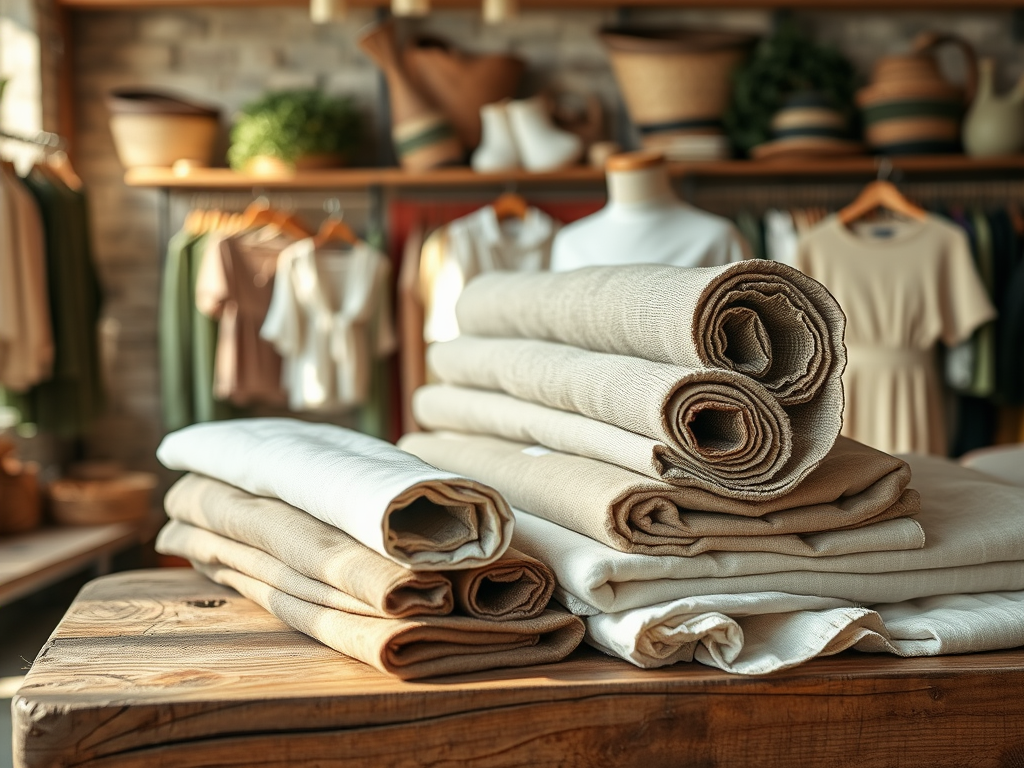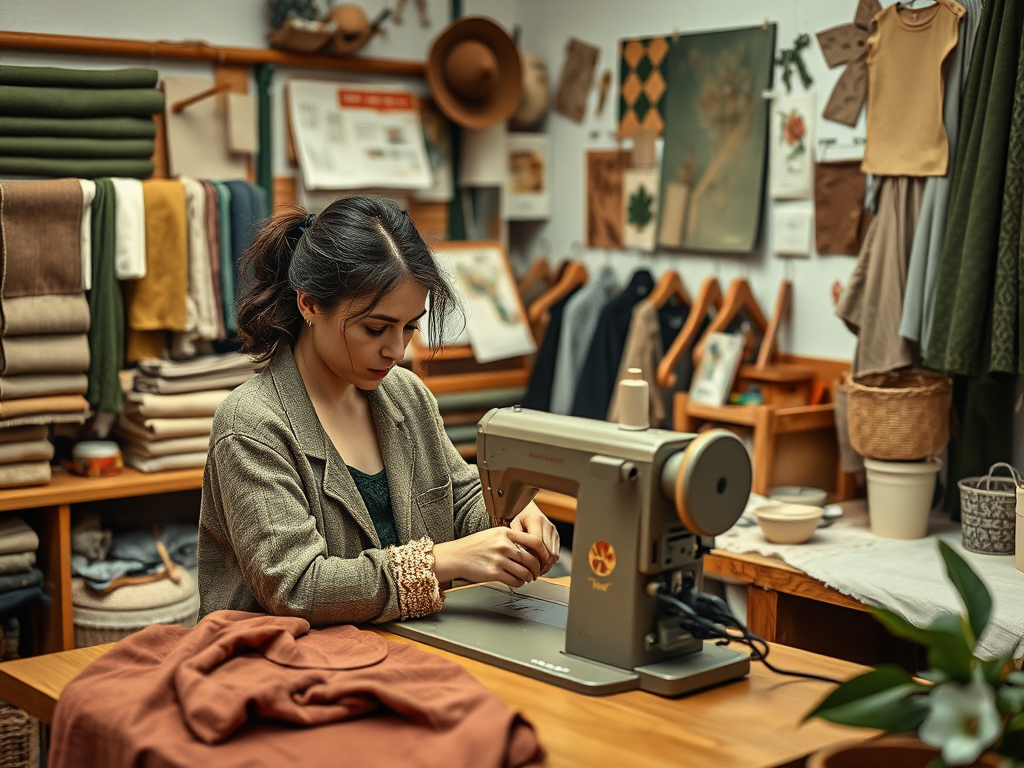The fashion industry has undergone a transformative change in recent years, largely influenced by the bold initiatives of small clothing businesses. These innovative brands are not just participating in the market; they are actively shaping its future. They bring a refreshing perspective to a realm often dominated by fast fashion giants. By emphasizing sustainability, personalization, and community engagement, these small enterprises inspire consumers to rethink their shopping habits and embrace more thoughtful consumption. Many of these businesses operate with tighter budgets, which obliges them to be resourceful and creative in how they design and deliver their products. This creativity is opening doors to radical new ideas that could redefine the entire fashion landscape.
Small clothing businesses are increasingly prioritizing sustainability, as consumer demand for ethical practices grows. This isn’t just a trend; it’s a significant shift that reflects a broader cultural awareness regarding environmental and social issues. These brands are finding innovative ways to utilize eco-friendly materials and ethical production practices that resonate with their audience. As fast fashion faces criticism for contributing to environmental damage, these smaller players are stepping in to offer alternatives that are both stylish and responsible. This proactive approach has established a new benchmark for what consumers expect from clothing brands, encouraging a move toward sustainable fashion.
Emphasis on Sustainability

One of the hallmark features of small clothing businesses is their commitment to sustainability. They often embrace sustainable materials to minimize their environmental footprint while providing high-quality products. Eco-conscious consumers are actively seeking brands that align with their values, making sustainability a competitive advantage for small businesses.
Eco-Friendly Materials
- Organic cotton
- Hemp
- Recycled fabrics
- Natural dyes
- Tencel and other sustainable fibers
By focusing on these materials, small brands not only help the planet but also cater to a growing audience that demands more from their fashion choices. With increased competition from larger corporations, the creative use of sustainable materials provides a unique selling proposition that distinguishes these businesses in a saturated market.
Ethical Production Practices
In tandem with sustainability, many small clothing brands prioritize ethical production practices. By choosing to produce locally or maintain transparent supply chains, these companies are ensuring fair labor practices and responsible sourcing. This strategy contrasts sharply with many of the practices seen in fast fashion, where labor exploitation is frequently reported. Customers are becoming increasingly educated about these issues, seeking brands that demonstrate a commitment to ethical operations.
| Practice | Benefit |
|---|---|
| Local Production | Supports local economies and reduces carbon footprint |
| Transparent Supply Chains | Builds consumer trust and accountability |
| Fair Labor Practices | Ensures dignity and fairness for workers |
Combining eco-friendly materials and ethical production practices empowers small clothing businesses to differentiate themselves from larger companies. They are leading a revolution in fashion that promotes both style and ethics, ultimately benefiting society as a whole.
Customization and Personalization

The ability to offer personalized options stands out as a key feature of small clothing businesses. Unlike their larger counterparts, these brands can quickly adapt to customer preferences, providing a level of service that fosters brand loyalty. Personalization transforms the shopping experience from a transactional interaction into something more meaningful. By allowing customers to influence the design process, small clothing businesses are forging connections that mass-produced brands often fail to achieve.
Made-to-Order Models
- Tailored fit options
- Color and fabric selection
- Exclusive designs based on customer input
This made-to-order model effectively reduces waste by creating pieces that only exist when a customer orders them. Not only does this practice result in fewer unsold items, but it also gives customers a sense of ownership over their purchases.
Direct Customer Engagement
Through social media and digital platforms, small clothing businesses can establish direct communication channels with their customers. This not only facilitates immediate feedback but also helps brands stay attuned to evolving market trends. Direct engagement fosters a sense of community around the brand, allowing customers to feel more involved in the business. Social media campaigns, online polls, and interactive content enable small businesses to cultivate strong relationships with their audiences, creating loyal supporters who feel valued and empowered.
Embracing Technology
Many small clothing businesses are capitalizing on technology to enhance their offerings and streamline operations. E-commerce has transformed the retail landscape, providing small brands with opportunities to compete on a global scale. This digital frontier allows them to reach wider audiences without the constraints of physical retail spaces. By leveraging online marketing strategies such as effective SEO and social media advertising, small brands can drive significant traffic to their online stores, enhancing their visibility.
- Access to international markets
- Reduced overhead costs
- Agility in responding to market trends
Furthermore, advancements like virtual fitting rooms are also proving to be game-changers for small clothing businesses. These technologies allow customers to try on clothes digitally, enriching the online shopping experience while minimizing the need for returns. Such innovative measures demonstrate that small brands can adopt cutting-edge technologies that enhance customer satisfaction.
Community Engagement and Storytelling
Small clothing businesses often thrive on their ability to forge strong connections within their communities. They understand that people do not just buy clothes; they buy stories and experiences. By sharing authentic narratives about their brand journey, these small companies create emotional connections with their customers, which contribute significantly to brand loyalty. This approach creates a sense of belonging, encouraging shoppers to invest not just in a product but in a vision and mission.
Building Local Partnerships
- Collaborating with local artisans
- Showcasing regional craftsmanship
- Promoting local culture and heritage
These partnerships not only enrich their product offerings but also strengthen community ties, leading to broader support for local businesses. Customers are increasingly gravitating towards brands that demonstrate these values, further driving the evolution of the fashion landscape.
Authentic Brand Stories
Small brands frequently highlight their unique stories through marketing materials, social media, and storytelling techniques. This authenticity fosters trust among consumers who are fatigued by generic marketing tactics. When customers can relate to a brand on a personal level, they are more likely to make a purchase and advocate for the brand within their social circles. The emotional resonance created through storytelling transforms ordinary buying experiences into memorable milestones.
Conclusion
Small clothing businesses are at the forefront of innovation within the fashion industry, reshaping the landscape through creative strategies that emphasize sustainability, personalization, and community engagement. These brands are not just challenging the status quo; they are defining a new way forward that elevates ethical practices and consumer experiences. By leading with integrity and creativity, small businesses are setting new benchmarks for success in the world of fashion. This responsive approach not only empowers consumers but also paves the way for a more sustainable and inclusive industry.
Frequently Asked Questions
- What defines a small clothing business? A small clothing business is typically characterized by its limited production scale, local operations, and a focus on niche markets.
- How are small clothing brands competing with larger companies? They use innovative strategies such as sustainability, community engagement, and personalized customer experiences to differentiate themselves.
- What role does technology play in small clothing businesses? Technology enables e-commerce growth, enhances customer interaction, and streamlines production processes, allowing small brands to operate efficiently.
- Are small clothing businesses more sustainable than large brands? Many small clothing businesses prioritize sustainability and ethical practices, often producing fewer items and utilizing eco-friendly materials.
- How can I support small clothing brands? You can support small clothing brands by shopping locally, sharing their stories on social media, and choosing to buy from ethical and sustainable sources.



